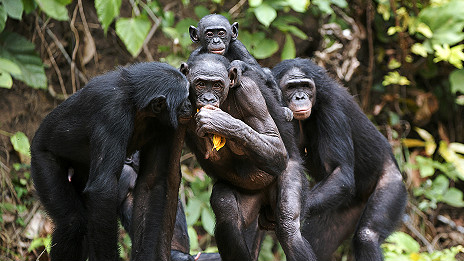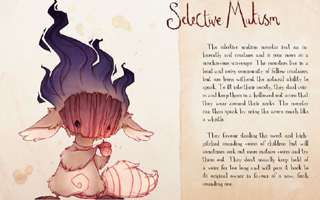媒体英语会带大家一起学习 BBC 撰稿人在报道世界大事时常用到的单词和短语。

Bonobos "peep" in various contexts - including feeding, travelling and resting
收听与下载
英国和瑞士的心理学家最新研究的结果显示,野生倭黑猩猩在遇到某些情况时会使用一种高声调的叫声。这个原本被认为只有人类才能掌握的技能显示出倭黑猩猩在交流时的灵活和应变性。以下是 Jonathan Webb 的报道。
It used to be thought that apes could only make noises that were tied to their emotions such as barks of alarm or hoots of excitement. But this strange peeping sound recorded from wild bonobos appears to have more in common with the calls of human babies.
At just three or four months of age, we humans let out growls or squeals that sound the same whether we are happy or distressed. It's up to our parents to figure out what we mean from the context.
The researchers say it's the same with these bonobos peeps. An identical sound is made in happy or in neutral contexts. So instead of being unique to humans, these flexible calls apparently date back at least six million years to our common ancestor with bonobos and chimpanzees. Dr Zanna Clay from the University of Birmingham said her key observation was that the bonobos separated the sound they were making from how they were feeling.
It seems that the flexibility of our own squawks and grunts joins the growing list of abilities that we humans can no longer count as uniquely ours.
Glossary 词汇表 (点击单词收听发音)
- barks吼叫
- hoots叫喊
- growls低声的吼叫
- squeals长而尖的叫声
- distressed烦恼的,痛苦的
- figure out弄明白
- context环境,背景
- common ancestor共同的祖先
- squawks(人)大声抱怨、喊叫
- grunts(人因为不满或烦恼发出的)嘟哝,哼声












